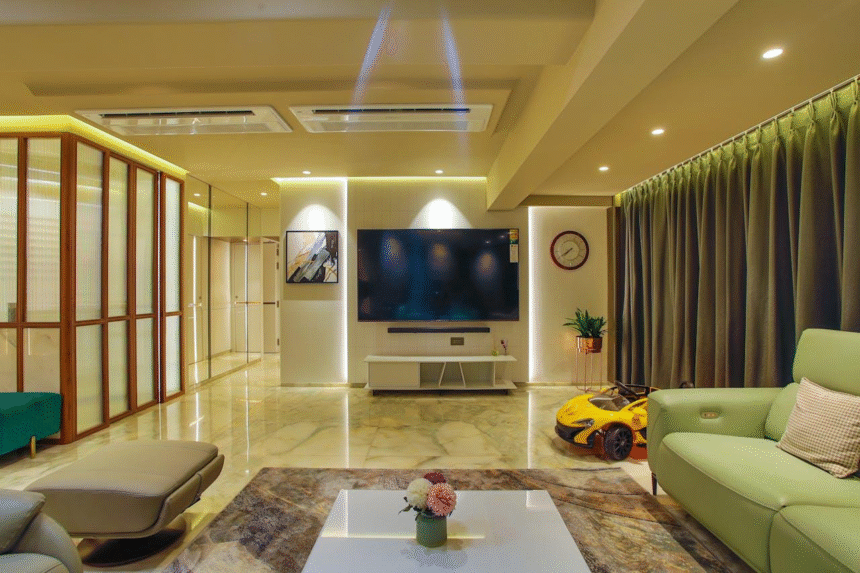Keeping the air in your home clean is vital for your family’s health, and regularly changing your air filters is a major part of this. Air filters capture dust, allergens, and other particles, helping to keep indoor air fresh and breathable. Yet, many homeowners aren’t sure how often to replace these filters. Changing them too soon can be costly, while waiting too long can compromise air quality and cause your HVAC system to work harder than necessary. Knowing the factors that influence when to replace your filters—such as the presence of trees for sale in Toronto around your home—can help you maintain a healthy indoor environment and optimize your system’s efficiency. This article will cover practical tips on how to know when it’s time to replace your air filters and how doing so can enhance your overall air quality.
1. Follow the Manufacturer’s Guidelines
One of the easiest ways to determine when to replace your air filters is by checking the manufacturer’s recommendations. These guidelines typically suggest replacing filters every 30 to 90 days, depending on the type of filter and its usage. Higher-efficiency filters may last longer, while cheaper, thinner filters often need to be changed more frequently.
Paying attention to these instructions is a great starting point, but your home’s specific conditions may require more frequent changes, especially if you live in areas with higher pollution or allergens.
2. Consider Your Home’s Air Quality
If you or anyone in your household suffers from allergies, asthma, or other respiratory issues, you should change your air filters more often. Poor indoor air quality can worsen these conditions, making clean air all the more critical. Homes in urban areas or near busy roads can also experience more pollutants in the air, requiring more frequent filter changes to ensure good air quality.
3. Pay Attention to Dust Buildup
One of the easiest signs that your air filters need changing is the buildup of dust on your furniture and surfaces. If you notice that dust collects more quickly than usual, it may be a sign that your filters are no longer effectively trapping particles. When the filters become too dirty, dust and other allergens will circulate through your HVAC system and into your home, affecting both air quality and cleanliness.
Regularly checking the dust levels in your home can be a good indicator of when it’s time for a new air filter.
4. Evaluate Your HVAC System’s Performance
A clogged air filter can cause your HVAC system to work harder than necessary, reducing its efficiency and potentially leading to higher energy bills. If you’ve noticed that your air conditioning or heating system isn’t performing as well as it used to, it might be time to check the air filter.
Restricted airflow due to a dirty filter can also lead to overheating, causing unnecessary wear and tear on your system. Avoiding frequent AC repair in Ajax by simply replacing filters regularly will help extend the life of your system and keep it running smoothly.
5. Check for Pet Dander
If you have pets, especially those that shed frequently, your air filters will need to be replaced more often. Pet hair and dander can quickly clog filters, reducing their efficiency and affecting your home’s air quality. Homes with multiple pets or high-shedding breeds should replace air filters every 30 to 45 days, depending on the level of dander in the air.
Make it a habit to inspect your filters more regularly if you share your home with furry friends.
6. Look for Visible Dirt on the Filter
Sometimes, you can simply check the filter itself to see if it’s time for a replacement. If the filter appears grey or covered in dust, it’s definitely time for a change. Most air filters are white or light-coloured when they are new, so the dirt will be obvious when you inspect them. Visible dirt and dust mean the filter is no longer doing its job effectively, and waiting too long to replace it could impact your home’s air quality.
7. Factor in Seasonal Changes
The changing seasons can affect how frequently you need to replace your air filters. During peak seasons, such as summer and winter, your HVAC system is likely running more frequently, which means the filters will get dirtier faster. If you live in an area with high pollen counts in the spring, consider changing your filters more often to minimize allergens circulating inside.
Being proactive during these periods ensures that your system stays efficient and your home’s air quality remains high.
8. Know Your Filter Type
The type of filter you use will also influence how often it needs to be replaced. There are different types of air filters, including fiberglass, pleated, and high-efficiency filters. Fiberglass filters are typically the cheapest and need to be replaced every 30 days. Pleated filters may last longer, up to 90 days, while high-efficiency filters (HEPA) can last even longer, depending on your usage.
Make sure you know which filter you’re using and replace it accordingly.
9. Monitor Your Energy Bills
If you notice a sudden spike in your energy bills, it could be a sign that your HVAC system is working harder than it should. Clogged or dirty air filters restrict airflow, which forces your system to use more energy to heat or cool your home. Keeping an eye on your monthly bills can help you catch this issue early.
Regular filter replacements can help maintain your system’s efficiency, which keeps your energy bills in check.
10. Set Regular Reminders
Lastly, the best way to stay on top of your air filter replacements is by setting regular reminders. Whether you use a calendar, phone app, or sticky notes on your fridge, keeping track of when you last replaced your filter will ensure you never miss a replacement. Regular maintenance is key to a healthy home environment and a long-lasting HVAC system.
Replacing your air filters regularly is one of the simplest and most cost-effective ways to improve your home’s air quality and maintain an efficient HVAC system. By following the manufacturer’s guidelines and paying attention to factors such as air quality, dust buildup, and energy bills, you can determine the right time to replace your filters. Keeping your air filters clean will ensure your family breathes fresh, clean air and your HVAC system runs smoothly for years to come.







